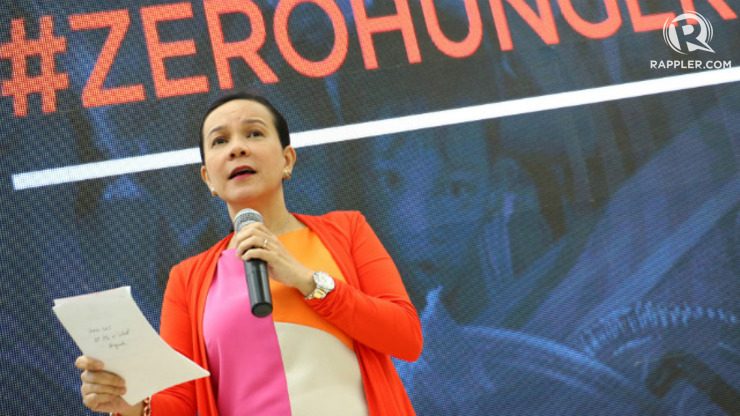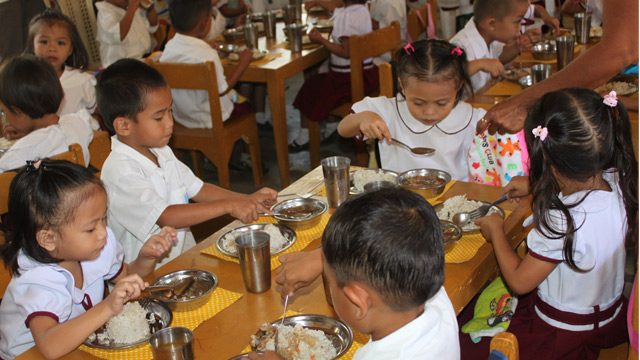SUMMARY
This is AI generated summarization, which may have errors. For context, always refer to the full article.

MANILA, Philippines – Young Filipinos are the Philippine’s competitive advantage over other countries, but hunger and malnutrition stifle the development of their full potential, Senator Grace Poe said in a forum dubbed “Aiming for #ZeroHunger” on Friday, November 14.
“They will not reach that potential if in the beginning, they’re already hungry,” she said in the forum organized by Rappler, the Department of Social Welfare and Development (DSWD) and the World Food Programme (WFP).
Economists predicted that the country will be one of the top economies in Asia in 2050. The high prevalence of hunger and malnutrition among today’s children is one of the big hindrances in achieving this goal.
The latest National Nutrition Survey of the Food and Nutrition Research Institute (FNRI) revealed almost 20% of children under 5 years old are underweight while 30% are stunted or too small for their age. (READ: What is the nutritional status of Filipinos?)
Irreversible effects of malnutrition
According to the WFP, the effects of malnutrition on a child are irreversible – especially if inflicted during the first 1,000 days since the child’s conception in a woman’s body. (READ: Ending the malnutrition cycle)
Meanwhile, hunger among schoolchildren will eventually take its toll on their academic performances. NNS figures show that the prevalence of wasted Filipinos aged 5-19 years old still remain high.
These children’s skills – creativity, critical thinking, and concentration – are more likely to be negatively affected as micronutrient deficiencies hinder the development of physical and cognitive skills. (READ: Learning on an empty stomach)
Turning it around
The current budget of the Department of Education per child for food is only P16 ($.36)*. With the high prices of food commodities, it is nowhere near possible to acquire a decent, nutritious meal with the amount.
To achieve positive results, feeding programs that provide adequate and nutritious meals – albeit costly – should be implemented, according to Poe.
“If the young people are our advantage, then we have to take care of our kids,” Poe stressed.

One of her bills, Sustansya Para sa Batang Pilipino Act, seeks to answer the problem by providing full lunch meals to all public elementary students. It also aims to further enhance and institutionalize the budget of the feeding programs of the government.
“The logistics and the way we will provide these meals will be efficient, be effective, and it will not be subject to corruption,” Poe emphasized.
“Mahiya naman sila kasi pagkain ito ng mga bata, bata ang kanilang ninanakawan (They should feel embarrassed, they’re stealing from children.”), Poe said.
Aside from focusing on children suffering from severe malnutrition, Poe hopes to expand the program to include those who are underprivileged.
“Sagarin na natin at ituloy tuloy na natin na para sa lahat ng mga bata,” she added. “Ang daming ginagasta ng gobyerno, dapat mag-focus sa makakabuti talaga.“
(We should maximize and expand for all children. The government spends too much on a lot of things – it should then spend more on children.) – Rappler.com
In case you missed the event, you can watch it here and read the liveblog. If you want more information on #ProjectHunger, email move.ph@rappler.com and sign up to be a part of the #HungerProject community.
Add a comment
How does this make you feel?
There are no comments yet. Add your comment to start the conversation.